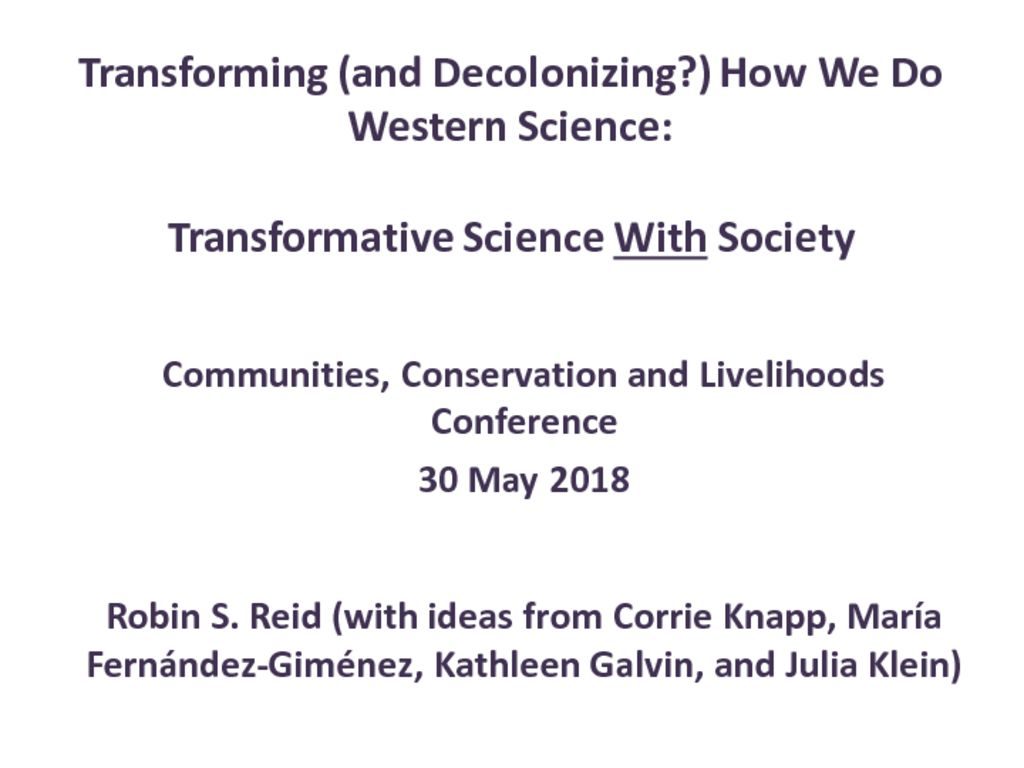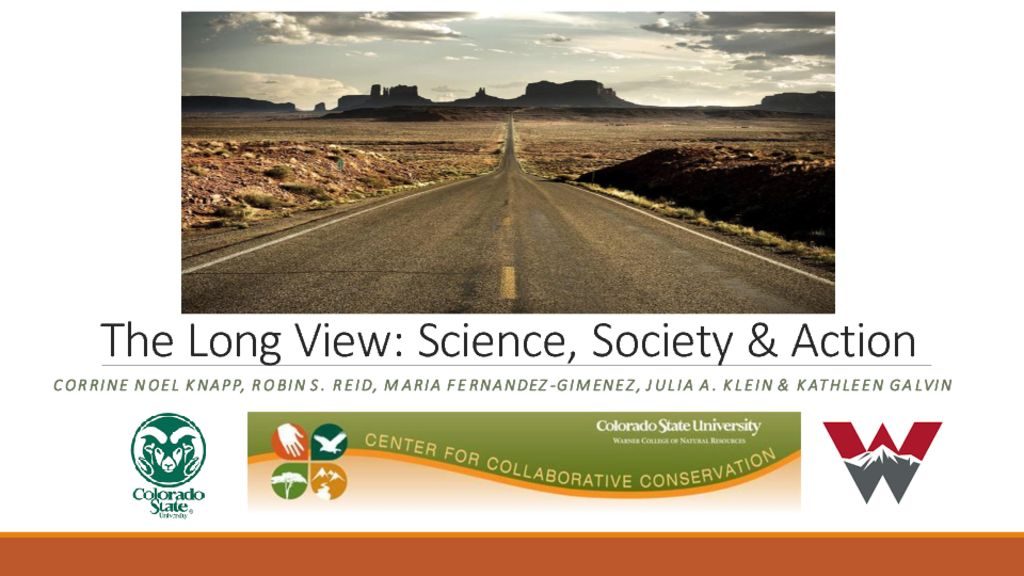24 May Transformative Science with Society: Innovations in Community-based Conservation
This session explored how community-scientist teams around the world are changing the process of science by working closely together on conservation and livelihoods issues. We call this approach ‘transformative science with society’. This new science brings together participatory action research, citizen science, transdisciplinary science, adaptive ecosystem management and community development to catalyze transformations in social-ecological systems.
This approach and its framework were discribed by presenters, along with why it grew from the practice of working with communities on conservation and livelihoods. The core of this approach, co-production of knowledge, where local and indigenous knowledge holders bring their knowledge together with that of scientists, was discussed to address critical issues in community conservation. Two examples were shared here, one example examined community conservation through sacred sites, and another looked at herder and scientist observations of rangeland health in community-based conservation initiatives across Mongolia. A final presentation shed light on scientist-manager partnerships to support conservation and ranching livelihoods in the western US.
The session took the format of a ‘fish bowl’, starting with short talks, and ending with an extended discussion session, concluding with thoughts on the next steps forward for this democratized science approach in support of community-based conservation.
Key Themes:
Factors of Success in Community Conservation, Livelihoods, Governance, Rights & Conflict, Engagement, Education & Empowerment
Presenters:
Robin Reid (Colorado State University)
Maria Fernandez-Gimenez (Colorado State University)
Corrie Knapp (Western State Colorado University)
Fikret Berkes (University of Manitoba)
Chantsallkham Jamsranjav (Colorado State University)




![thumbnail of 2. Fernandez-Gimenez Halifax trans sci fish bowl session 30 May 2018[1]](https://www.communityconservation.net/wp-content/uploads/2019/05/2.-Fernandez-Gimenez-Halifax-trans-sci-fish-bowl-session-30-May-20181-pdf-1024x768.jpg)
